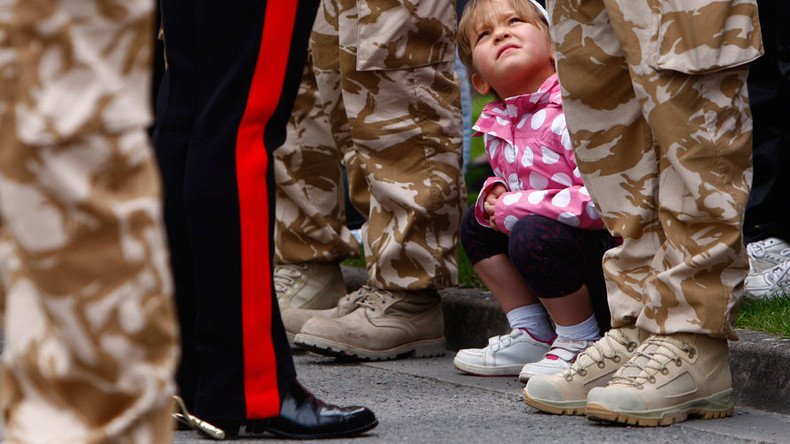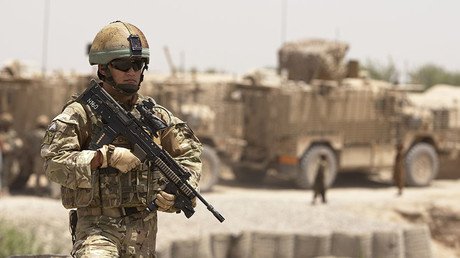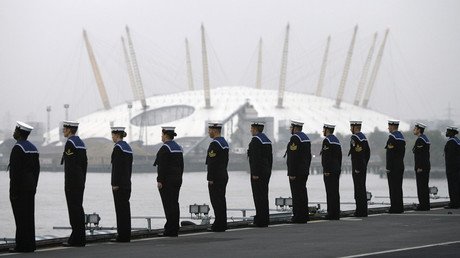‘Used by the army’: British recruitment of child soldiers condemned by doctors & veterans

In a scathing report released on Tuesday, veterans and doctors slammed the UK for recruiting child soldiers under the age of 18, arguing they are misinformed and far more likely to be killed in action, suffer long-term health issues, or commit suicide.
The report entitled "The Recruitment of Children by the UK Armed Forces: a Critique from Health Professionals," which was fronted by the public health charity Medact, draws on damning testimony from those who joined the military as children to make a scientific and ethical case for raising the recruitment age to 18.
Medact are calling on @BritishArmy and @DefenceHQ to #RaiseRecruitmentAge. See our report, launched today: https://t.co/85qiFfTlFw
— Medact (@Medact) October 18, 2016
Aside from making a moral case against the practice and exposing what they consider opaque and dishonest recruiting tactics, the authors argue that young adolescents are incapable of making informed decisions, given the way military careers are “glamorized,” while their youth and stage of brain development also mean that they are more likely to be damaged by service.
“Minimum age laws exist to protect children from smoking, drinking, driving and watching violent films,” Dr. David McCoy, Medact’s director, told the Guardian.
“It’s time for the UK to fall in step with the vast majority of countries and raise the minimum recruitment age to 18,” he said.
The UK is the only UN member, and the only nation in Europe, which recruits children into the military. Although they cannot be deployed until they reach 18, the accounts of veterans on the process of learning to fight and kill as children serve as potent testimony.
The study argues that those joining as children are more likely to end up in combat positions, which makes them more likely to be killed.
If they do survive, they are far more likely to be mentally damaged, struggle to re-adapt to normal life, and are at a greater risk of suicide than those who do not undertake military service, the report claims.
Steve Brown, who joined the Fusiliers at 16, told the authors of the report that he “became a child soldier in the British army because they’d groomed me since the moment I joined the cadets.”
He said the army “promised us life in the army would be glamorous, fun and well-paid. There was no mention of the downsides, even at the recruitment office itself.”
“A decade after leaving the army, I’m still recovering from the damage it did to me,” Brown claimed.
“When I left, I realized that I had never learned how to make my own decisions or have my own opinions. Because I’d joined so young, I had been completely moulded by the army and life outside was almost impossible.”
The report found that over 22 percent of enlistees in the last financial year were under 18. The army signs up recruits from the age of 15 years and seven months old.
Another boy soldier, Wayne Sharrocks, told the authors: “I was manipulated by the media: soldiers were always referred to as ‘heroes’ and being in the army, fighting these terrorists, was presented as being the noblest thing a man could do.”
He said the training process saw him and his fellow recruits “battered into following orders without thinking, the loyalty to our unit was absolute and – most psychologically damaging – we had our human instincts destroyed, so killing someone wasn’t a big deal and always being ready to fight was second nature.”
Sharrocks, who served two tours in Afghanistan, including one in which he was wounded, said his “friends now say that I became hyper-aggressive and super-angry as a result of my army training.”
“As I say, I was a child. I had no wider experience of life to give me perspective. I was used by the army,” he added.
He eventually left and suffered a breakdown.
“I’ve had counseling and am working my way back up. I’m 27 now. The army has taken 10 years of my life. And yes, I’m angry about that. Very angry,” he said.














